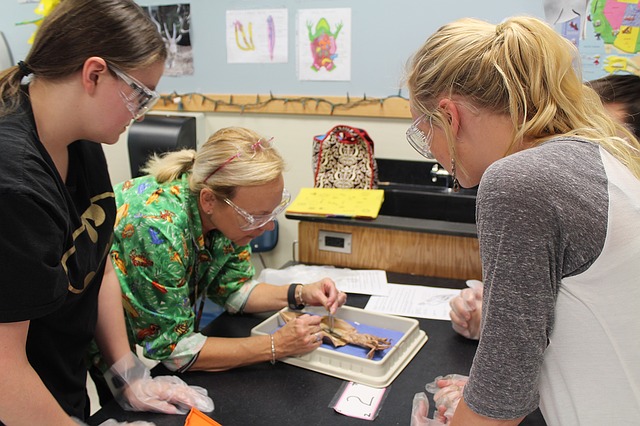Author: Paulomi De Hazra, Associate Blogger, Yellow Connection
Russell Group delves into the alarming drop in the number of admissions from State Schools into Premier Universities, and possible solutions.
Schools, besides imparting basic education and life skills, offer a stepping stone to our youngsters by giving them the means to seek higher education, better employment and improved quality of life. In the recent years, there has been an ever-increasing pressure from Ministers and higher education (HE) regulators to boost participation of students from less privileged backgrounds. In spite of this, the number of such admissions to Premier Universities has dropped substantially in the past year.
According to a research study by Higher Education Statistics Agency (HESA), the proportion of state school students in the UK has fallen for the first time since 2011. This includes:
- Exeter : -3.5%
- Imperial College, London: -1.9%
- Durham: -1.6%

Furthermore, Oxford with only 58.2% and Cambridge with a slightly better 63.4% marked the lowest proportion of State School pupils admitted to any UK university in 2017-18, well below the national average of 89.8% – which is a further fall of 0.2% from the previous year.
Only 6% children in the UK attend private schools and still make 30+% of students admitted to 15 Premier Universities, including specialist institutes like the Russell Group Universities.
The Russell Group represents 24 of the leading UK Universities that are committed to maintaining the very best research, an outstanding teaching and learning experience, and unrivalled links with business and the public sector. These Universities not only play an important role in shaping the intellectual life of the UK, they impact the socio-cultural and economic facets of life locally within the UK and globally. The Group, incorporated in 2007, acts as a think-tank that helps the Universities flourish to provide the very best of educational facilities by providing strategy, policy development, intelligence, communications and advocacy for the member institutions. The group also participates in improving the quality of education imparted at schools to ensure everyone receives the support needed in achieving the requisite grades at GCSE and A-levels for quality higher education.

Common sense says an 18-year old from a disadvantaged background is more likely to seek higher education to improve their job prospects, which sadly is far from reality. The prime objective of schools, state and public alike is to help pupils attain better grades at GCSE and A-levels to improve their chances of a University admission. Yet, research studies reveal that only 5% of the AAB or better grades at A-levels are from the most disadvantaged sections, compared to 45% coming from the most advantaged. The need of the hour certainly is to create means to enhance renewed participation of pupils, especially from disadvantaged sector, and help them achieve the required grades to seek admission into the course and university of their choice.
The Higher Education Policy Institute (HEPI) recently and quite radically advised that a way of increasing such participation would be to lower the entry requirements for admissions. This, according to Russell Group Head of Policy, Sarah Stevens will strip the schools off the biggest incentive for students to work hard – attain good grades at GCSE and A-levels.
She states that it will be extremely counterproductive as this will increase the drop-out rates of students at the Universities as they may not be able to cope with the pressure and vastness of the curriculum. Furthermore, she asserts, this will lower the standard of attainment on degrees at various Universities, even the premium ones, since the overall quality of student intake will directly affect the quality of graduates too. According to Stevens, a homogenised ‘comprehensive school’ system will damage the international standing of the UK Higher Education. This will curtail the much needed funding received from overseas admissions, making the whole system unsustainable and sub-par. Hiring such graduates into the working mainstream would further lower the quality of employees taking up positions in various sectors and organisations, creating a domino effect of a major scale. This will benefit neither the students, nor the Universities, the employers, the tax payers.
The Russell Group of Universities instead aim to work extensively at the grass-roots with state schools and colleges of all types, across the UK. They are working hard to ensure all students have equal opportunities to access the benefits of higher education and are making steady progress in widening access to their institutions, with the number of disadvantaged and under-represented students at their universities increasing over time. The Russell Group aims to identify and support methodologies that aid teachers to raise the attainment of students from deprived backgrounds into Premier Universities. In fact, they spent £254m in 2018, and earmarked a further £274m for 2019, towards various ‘outreach’ programmes through its member Universities, like the Universities of Birmingham, Liverpool and Queen Mary University of London. This has been initiated to encourage more students from state schools and disadvantaged backgrounds through bursaries, extra tutoring and support, as well as free lunches across numerous schools to ensure fewer drop-outs from schools.
Activities include:
• Encouraging successful applications from students from disadvantaged and under-represented backgrounds through various participatory events: from mentoring, summer schools and campus visits, to sponsoring schools and providing CPD for teachers.
• Closing gaps in continuation, attainment and progression by providing academic, pastoral and financial support for disadvantaged students to ease their transition to university, help them succeed in their studies and progress to work or further study.
• Evaluating the success of their activities to build a strong evidence base and design interventions which will be highly effective, for example, in supporting specific groups of students.

Progress in widening access and supporting student success needs to be a continual process and the rate of change needs to improve. The root causes of under-representation are complex, and ambitious, long-term efforts are needed across a range of agencies to address these issues effectively – with universities playing a key role alongside schools, employers, charities, local authorities and Government. As Ms. Stevens, Head of Policy at Russell Group reiterates, ‘A great deal of effort and investment is going into making our universities more inclusive. We’re doing more and more evaluation, to better understand and prioritise the interventions which work best’.

